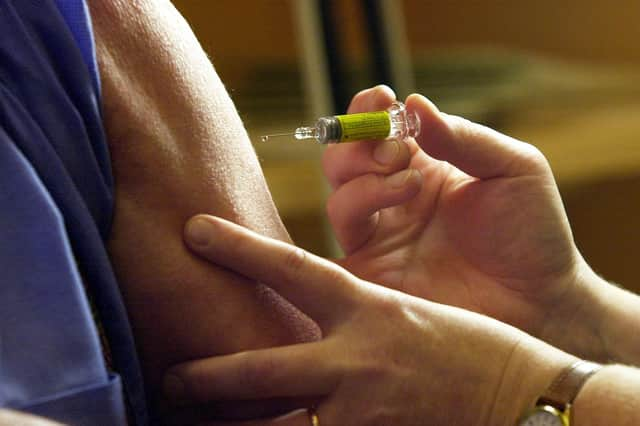Vaccine trials infecting young people with Covid-19 to begin in January


Up to 90 young and healthy people between the ages of 18 and 30 will be recruited to take part in the trials in London.
They will be exposed to the virus in a controlled environment, and will then be carefully monitored to work out the smallest amount of virus it takes to cause Covid-19 but not serious illness.
Advertisement
Hide AdAdvertisement
Hide AdIt is hoped the trials will start in January, with results expected by May 2021, pending approval from regulatory bodies and ethics committees. The next phase will be to test vaccines.
After the initial study at the Royal Free Hospital in London the volunteers, who will be paid for their involvement, will be tracked for a year.
The UK Governmen is investing £33.6 million to back the studies in partnership with Imperial College London, hVIVO and the Royal Free London NHS Foundation Trust.
Business Secretary Alok Sharma said: “We are doing everything we can to fight coronavirus, including backing our best and brightest scientists and researchers in their hunt for a safe and effective vaccine.
“The funding announced today for these ground-breaking but carefully controlled studies marks an important next step in building on our understanding of the virus and accelerating the development of our most promising vaccines which will ultimately help in beginning our return to normal life.”
Lead researcher on the human challenge study Dr Chris Chiu, from Imperial College London, said: “Our number one priority is the safety of the volunteers. No study is completely risk-free, but the Human Challenge Programme partners will be working hard to ensure we make the risks as low as we possibly can.
“The UK’s experience and expertise in human challenge trials, as well as in wider Covid-19 science, will help us tackle the pandemic, benefiting people in the UK and worldwide.”
Kate Bingham, chair of the UK Government’s Vaccine Taskforce, said: “This research will improve understanding of the virus, the biology of the disease, the signs that a person is protected from infection or developing the disease, the vaccine candidates, and will help in making decisions about research, that it is carried out safely and based on up-to-date evidence.
Advertisement
Hide AdAdvertisement
Hide Ad“There is much we can learn in terms of immunity, the length of vaccine protection, and reinfection.”
The news comes after the UK Government’s chief scientific adviser said it is “unlikely” that a coronavirus vaccine will stop the disease completely.
Sir Patrick Vallance said that only one disease – smallpox – had ever been completely eradicated.
Giving evidence to the joint Commons and Lords National Security Strategy Committee, he said that, in future, treating Covid-19 may become more like seasonal flu.
Sir Patrick said that, over the next few months, it will become clear whether there are any vaccines that do protect, and how long for.
He added that, while a number of candidates cause an immune response, only phase three trials will indicate whether they stop people from being infected.